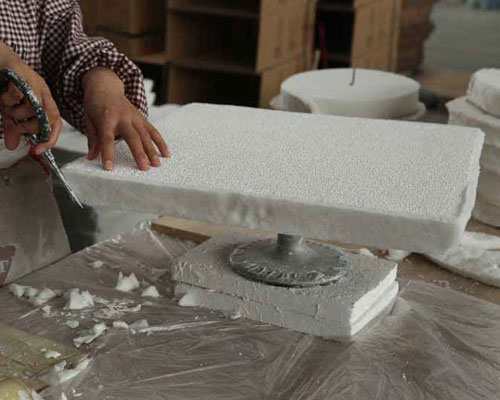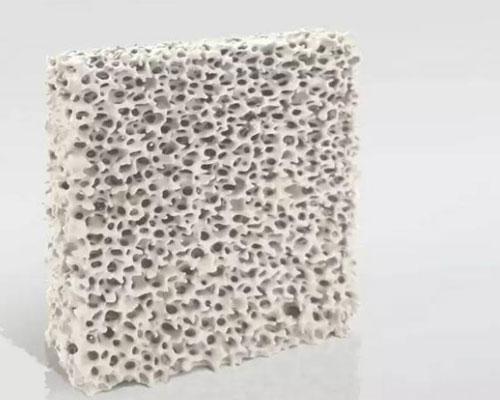Inclusions and gases in the metal have a significant impact on the strength, fatigue resistance, corrosion resistance, and stress corrosion cracking performance of the material. Effectively controlling the oxidized inclusions in the melt to improve the quality of the cast rod is the common goal pursued by the aluminum industry. At present, foam ceramic filter technology and purification methods are widely used to remove inclusions in aluminum alloy melts.
Part of the inclusions in aluminum alloy come directly from scrap, and most of them are formed during smelting and pouring, mainly oxide inclusions. All inclusions before casting are called primary oxidation inclusions. According to the size, it can be divided into two categories: One is the uneven distribution of large inclusions in the macrostructure, which makes the alloy structure discontinuous, reduces the compactness of the casting, becomes the source of corrosion and the source of cracks, thereby significantly reducing the alloy Strength and plasticity. The other is the fine dispersed inclusions, which cannot be completely removed after refining, which increases the viscosity of the melt and reduces the feeding ability of the molten aluminum during solidification.
The secondary oxidation inclusions are mainly formed during the casting process. During pouring, liquid aluminum contacts air, and oxygen reacts with aluminum to form oxide inclusions.
During the smelting process, the aluminum alloy contacts with various components in the furnace gas to generate Al2O3 and other compounds. Al2O3 in molten aluminum will increase the hydrogen content of aluminum alloy melt. Therefore, the content of Al2O3 in molten aluminum has a great influence on the formation of pores in aluminum castings.

Foam ceramic filter technology is now available in the 1970s. The use of foam ceramic filter plates is an effective way to remove inclusions in aluminum melt. As for the metal filter screen and fiber cloth filter, only large inclusions in the aluminum alloy body can be removed, but the inclusions below the micron level cannot be removed, and the metal filter screen will also pollute the aluminum alloy. The foam ceramic filter plate can filter out fine inclusions and significantly improve the performance and appearance quality of the castings. It is the first choice for the melting and casting workshop.

